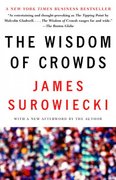Question
Suppose you are given the utility function: U=c+(c)/(1.10) and the budget constraint: c+(c)/(1+r)=y+(y)/(1+r) where y = 5, y' = 10, and the interest rate r
Suppose you are given the utility function:
U=c+(c)/(1.10)
and the budget constraint:
c+(c)/(1+r)=y+(y)/(1+r)
where y = 5, y' = 10, and the interest rate r = 0.10.
a) What is the optimal value of current consumption c*?
b) What is the optimal value of future consumption, c'*?
Now suppose the consumer experiences a temporary rise in real income in period 1, so that y = 9.
c)What is the optimal value of current consumption c*?
d)What is the optimal value of future consumption, c'*?
Now suppose that y= 5 again, and there is only one consumer in the entire economy. If we add in government expenditures and taxation, the consumer's budget constraint is now:
c+(c)/(1+r)=y+(y)/(1+r)?(?)/(1+?)
If current and future government expenditure is: g = 1, g' = 3.3, and if current taxation t = 2:
e) What is the value of second period taxation, t'?
f) What is the optimal value of current consumption c*?
g) What is the optimal value of future consumption, c'*?
Suppose that current taxation decreases decrease from t = 2 to t =1.5.
h) What is now the value of second period taxation, t'?
i) What is the optimal value of current consumption c*?
j) What is the optimal value of future consumption, c'*?
Step by Step Solution
There are 3 Steps involved in it
Step: 1

Get Instant Access to Expert-Tailored Solutions
See step-by-step solutions with expert insights and AI powered tools for academic success
Step: 2

Step: 3

Ace Your Homework with AI
Get the answers you need in no time with our AI-driven, step-by-step assistance
Get Started


